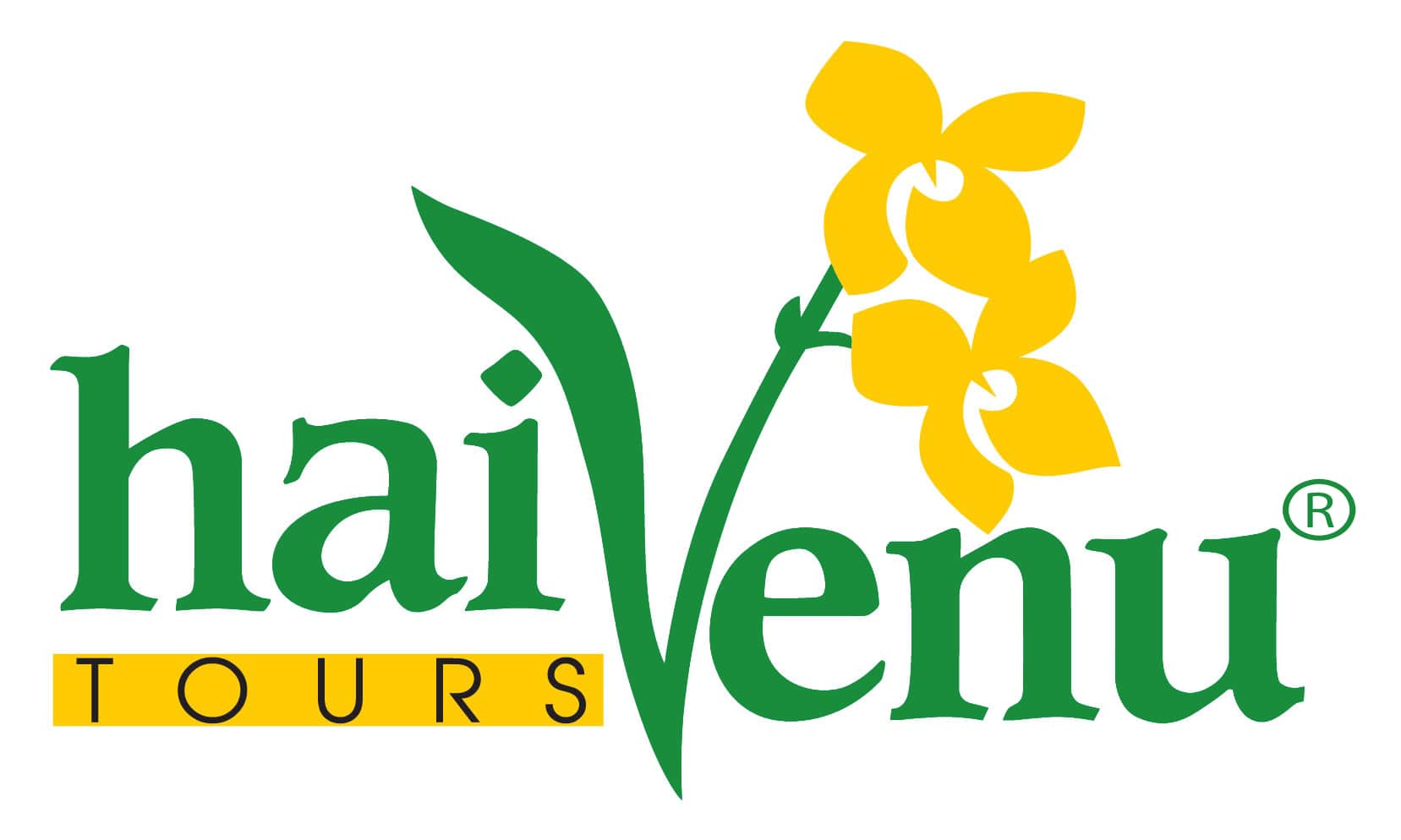Comprehensive Health Guide for Travellers to Vietnam
Last Updated on 8 May, 2024 by admin
Vietnam, a land of breathtaking natural beauty and profound cultural richness, offers an adventurous and enlightening experience for travelers from around the globe. From the cascading rice terraces of Sapa to the bustling streets of Ho Chi Minh City, each region presents unique landscapes and experiences. However, traveling in such diverse environments also poses various health challenges, which can significantly affect your trip if not addressed with care and preparation.
This guide aims to equip travelers with essential health-related information and practical tips to navigate Vietnam safely. Whether it’s understanding local culinary practices to avoid foodborne illnesses or knowing what vaccinations are necessary for specific regions, this guide covers all aspects to ensure your journey is not just enjoyable but also worry-free. By emphasizing preventative measures and providing insights into local healthcare practices, we aim to foster a deeper understanding and appreciation of Vietnam’s beauty while ensuring your health is never compromised.
Pre-Travel Preparations
Comprehensive Health Check and Vaccinations
Before you set foot on Vietnamese soil, a thorough medical check-up is crucial. This check-up should focus on assessing your fitness to travel and updating necessary vaccinations. Commonly recommended vaccinations for travelers to Vietnam include:
- Hepatitis A and B: Given the modes of transmission through food and bodily fluids, these vaccinations are essential.
- Typhoid: Especially necessary for those planning to explore smaller cities or rural areas where exposure to contaminated food and water is more likely.
- Tetanus: Important for those who might engage in outdoor activities where cuts could be exposed to soil.
- Rabies: Recommended for travelers who plan to spend a lot of time outdoors or in rural areas where they might be exposed to wild animals.
- Japanese Encephalitis: Consider this vaccination if you’re visiting rural farming areas especially during the monsoon season.
It’s also wise to discuss potential malaria prophylaxis with your healthcare provider as the risk varies significantly across different regions of Vietnam. The central highlands and the borders with Laos and Cambodia are more prone to malaria than urban areas like Hanoi and Ho Chi Minh City.
Securing Appropriate Travel Insurance
Travel insurance is an indispensable part of trip planning, especially for international travel. Ensure your travel insurance covers not only medical expenses but also unexpected trip cancellations, loss of luggage, and, importantly, medical evacuation. Given the variable quality of healthcare across Vietnam, having an option for medical evacuation can be a lifesaver in more remote or rural areas.
When selecting a policy, read the fine print carefully to understand what activities are covered. If your travel plans in Vietnam include motorbiking, rock climbing, or other adventure sports, confirm that your insurance provides coverage for these activities.
Water and Beverage Safety
Drinking Water
The tap water in Vietnam is generally considered unsafe for drinking by international standards. As a rule of thumb, always opt for bottled water and check that the seal is intact at the time of purchase. Avoid using tap water for brushing your teeth or making ice unless it has been boiled or filtered using a reliable method.
For an added layer of safety, carry a portable water filter or purification tablets, especially if you plan to hike or visit remote areas where bottled water might not be readily available. This can also reduce your plastic usage, contributing to environmentally responsible travel.
Beverage Consumption
While bottled water is safe, caution should extend to other beverages. In Vietnam, locally brewed beverages like rice wine or craft beers are popular among locals and tourists alike. When indulging in such drinks, do so at reputable establishments where hygiene standards are maintained. Be wary of homemade brews offered at rural or less touristy locations, as improper fermentation can lead to health issues.
Ice in Vietnam is generally safe as it is usually produced using purified water. However, if you have a particularly sensitive stomach or are unsure about the source, it’s better to err on the side of caution and refuse ice in your drinks.
Food Safety
Enjoying Vietnamese Cuisine Safely
Vietnamese cuisine is celebrated globally for its fresh ingredients and vibrant flavors, offering an array of dishes that tantalize the palate. However, the safety of food preparation varies, and understanding how to choose safe eating spots is key to avoiding foodborne illnesses.
When eating out, prefer venues that are busy. A high turnover of customers usually means food doesn’t sit out for long, which reduces the risk of contamination. Observe the cleanliness of the venue, especially the cooking areas. Street food vendors who cook meals to order in front of you can often be safer than restaurants where food may be pre-prepared and reheated.
Key dishes to try include phở (a noodle soup), bánh mì (a filled baguette), and fresh spring rolls. When trying these local dishes, ensure they are served hot, which is a good indication that they have been freshly prepared.
Avoiding Foodborne Illnesses
Raw or undercooked meats, as well as seafood, pose a significant risk of foodborne diseases such as salmonella or even parasitic infections. Be particularly cautious with dishes like gỏi cá (raw fish salad) or any raw shellfish. Vegetables and fruits should be washed and preferably peeled before eating to avoid contaminants that can cause traveler’s diarrhea.
Symptoms of foodborne illnesses include nausea, vomiting, diarrhea, and abdominal cramps. Should you experience these symptoms, it is important to stay hydrated. Oral rehydration salts can be a lifesaver in treating dehydration caused by diarrhea. Always have some with you as a precaution.
Protection from Environmental Factors
Sun Exposure
Vietnam’s tropical climate means the sun can be particularly harsh, especially for those not used to such exposure. Sunburn can occur quickly, significantly increasing the risk of heatstroke and long-term skin damage. A broad-spectrum sunscreen with a high SPF is essential, and should be reapplied every two hours or after swimming or sweating.
Clothing plays a critical role in protection. Lightweight, long-sleeved shirts, trousers, and wide-brimmed hats should be worn to protect skin from UV rays. Sunglasses with UV protection are also necessary to shield your eyes from harmful radiation.
Dealing with Heat and Humidity
The high humidity and temperature in Vietnam can lead to rapid dehydration and heat-related illnesses such as heat exhaustion and heatstroke. To prevent dehydration, it is crucial to drink plenty of water throughout the day—more than you normally would in a cooler climate.
Recognize the symptoms of heat exhaustion, including excessive sweating, weakness, cold, pale and clammy skin, fainting, and vomiting. If you or someone with you exhibits these symptoms, it’s important to move to a cooler place, rest, and rehydrate. If symptoms worsen or do not improve, seek medical attention immediately.
Sexual Health and Safety
Navigating Risks
While Vietnam is a beautiful and welcoming country, as in any destination, there are risks associated with sexual health. The rise in sexually transmitted diseases (STDs) including HIV/AIDS is a significant public health issue, exacerbated by limited sexual health education and often taboo nature of discussing such topics openly.
Travelers should exercise caution and always use protection if engaging in sexual activities. It’s also wise to avoid situations where judgment might be impaired, such as excessive alcohol consumption, which can lead to risky behaviors.
Contextual Challenges
In Vietnam, economic hardship has led to increased vulnerability among certain populations, including young women from rural areas who may turn to prostitution. Understanding the socio-economic factors at play can provide a deeper perspective on the risks associated with casual sexual encounters, which often go hand-in-hand with exploitation and crime.
Travelers should maintain respectful relationships and be mindful of the local laws and cultural norms that govern sexual behavior. Engaging in activities that exploit others not only poses a risk to one’s health but also contributes to the perpetuation of harmful practices.
Handling Epidemics and Health Alerts
Staying Informed
Traveling to any country entails staying alert to potential health risks that could arise during your visit. For Vietnam, staying informed through reliable sources is paramount, particularly when considering the region’s susceptibility to certain epidemics such as dengue fever or more globally impactful viruses like COVID-19.
Regularly check updates from the World Health Organization (WHO), the Centers for Disease Control and Prevention (CDC), and the Vietnam Ministry of Health. These organizations provide up-to-date information on ongoing health issues and vaccination requirements. Additionally, registering with your home country’s embassy can provide direct alerts in the event of a major health emergency.
Precautions and Response Strategies
In the case of an epidemic, follow local health advisories and international guidance on protection measures. This may include wearing masks, frequent hand washing, or even avoiding certain areas known for outbreaks. If an epidemic occurs while you are in Vietnam, it’s critical to follow the advice of health professionals and possibly alter your travel plans based on their recommendations.
Understanding the symptoms of common diseases found in Vietnam and how to seek medical help is also crucial. Prepare a small medical kit with essentials such as pain relievers, antidiarrheal medications, and first-aid supplies before your trip.
Navigating Local Medical Resources
Understanding Vietnam’s Healthcare System
Vietnam’s healthcare system varies significantly between urban and rural areas. In cities like Hanoi and Ho Chi Minh City, you can find international hospitals and clinics with staff who speak English and other foreign languages. These facilities provide high-quality care, albeit at a cost often much higher than local hospitals.
In contrast, rural areas may have limited medical facilities, and the available care might not meet the standards you’re accustomed to. It’s essential to know the location of the nearest hospital or clinic and how to get there in an emergency.
Accessing Medical Care
For non-emergency medical needs, local pharmacies are widespread in urban areas and can provide over-the-counter medication for minor ailments. However, be cautious of counterfeit drugs. Opt for pharmacies within or connected to hospitals for higher assurance of quality.
If you require a prescription or more specific medical attention, visiting a clinic in a larger city is advisable. Most clinics in tourist areas can handle common travel-related issues, and many accept international health insurance.
Conclusion
Vietnam is a stunning country with a rich cultural tapestry that offers travelers an enriching experience. However, like any travel destination, it comes with health risks that should not be ignored. By preparing adequately, staying informed, and understanding how to navigate the local healthcare system, you can significantly mitigate these risks.
Always prioritize your health by taking preventative measures against potential diseases, practicing good hygiene, and using common sense when it comes to food and water consumption. Equipped with the right knowledge and precautions, you can focus on enjoying the beautiful landscapes, delicious cuisine, and warm hospitality that make Vietnam a remarkable destination.




